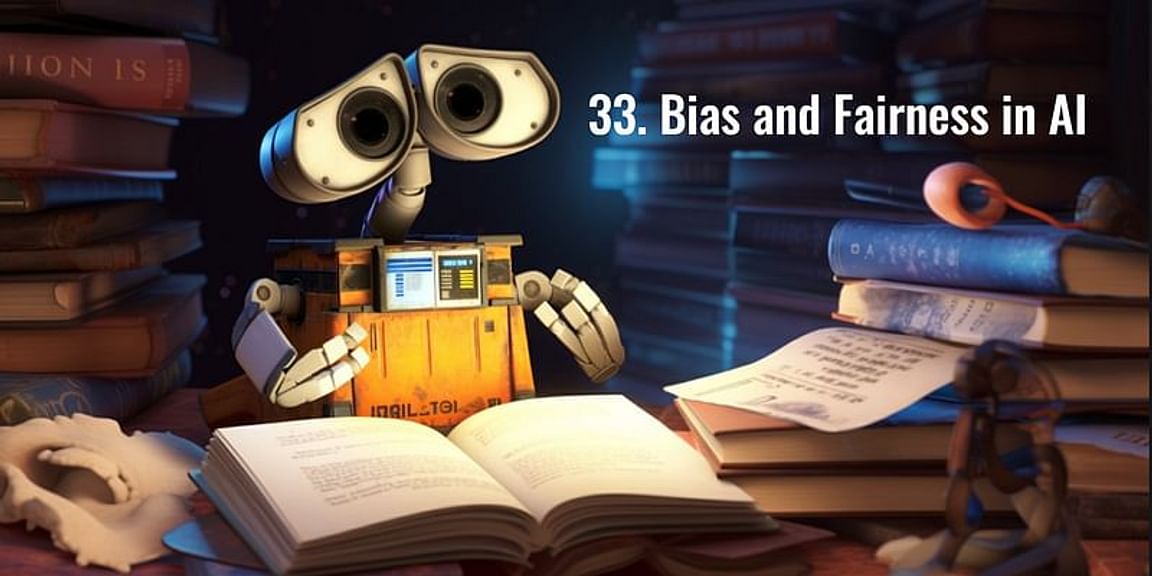Introduction
Artificial Intelligence (AI) has become an integral part of our lives, impacting various sectors such as healthcare, finance, and transportation. Machine learning models, a subset of AI, are designed to learn from data and make predictions or decisions. However, these models are not immune to biases and fairness issues, which can have significant consequences in real-world applications. In this blog post, we will explore the importance of addressing biases and fairness in machine learning models and discuss the ethical considerations surrounding AI.
Understanding Bias in Machine Learning
Machine learning algorithms are designed to learn patterns and make predictions based on the data they are trained on. However, if the training data contains biases, the AI models can inadvertently learn and perpetuate those biases. Bias in machine learning can occur due to various factors, including biased data collection, biased labeling, or biased algorithm design.
Biased Data Collection
One of the primary sources of bias in machine learning models is biased data collection. If the training data is not representative of the real-world population or contains inherent biases, the AI models will reflect those biases in their predictions. For example, if a facial recognition system is trained on a dataset that predominantly includes lighter-skinned individuals, it may struggle to accurately recognize individuals with darker skin tones.
Biased Labeling
Another factor contributing to bias in machine learning is biased labeling. Human annotators who label the training data may introduce their own biases, consciously or unconsciously. These biases can influence the AI models’ understanding of certain concepts or categories. For instance, if a sentiment analysis model is trained on data labeled by individuals with a specific political bias, it may struggle to accurately classify sentiments from individuals with different political beliefs.
Biased Algorithm Design
The design of the machine learning algorithms themselves can also introduce biases. The choice of features, the weighting of different factors, or the optimization objectives can inadvertently favor certain groups or outcomes. For example, if a loan approval system uses historical data that reflects past discriminatory practices, it may perpetuate those biases by denying loans to individuals from marginalized communities.
The Importance of Fairness in AI
Fairness is a fundamental aspect of AI ethics. It ensures that AI systems do not discriminate against individuals or perpetuate existing societal biases.
Summary
Machine learning models are powerful tools that have the potential to revolutionize industries and improve decision-making processes. However, these models can inadvertently perpetuate biases and unfairness if not properly designed and trained. Addressing biases and ensuring fairness in AI systems is crucial to prevent discrimination and promote equal opportunities.
In this blog post, we will delve into the concept of biases in machine learning models and the various sources from which they can arise. We will also explore the ethical implications of biased AI systems and the potential harm they can cause to individuals and communities.
Furthermore, we will discuss the importance of fairness in machine learning models and the challenges associated with defining and measuring fairness. We will explore different approaches and techniques that can be employed to mitigate biases and promote fairness in AI systems.
By understanding the ethical considerations surrounding AI and actively addressing biases and fairness issues, we can ensure that machine learning models are not only accurate and efficient but als Discover More Here o just and equitable.
- Q: What is AI ethics?
- A: AI ethics refers to the study and implementation of ethical principles and guidelines in the development and use of artificial intelligence systems.
- Q: Why is addressing biases and fairness important in machine learning models?
- A: Addressing biases and fairness in machine learning models is crucial to ensure that the decisions and predictions made by AI systems do not discriminate against certain individuals or groups based on factors such as race, gender, or socioeconomic status.
- Q: What are biases in machine learning models?
- A: Biases in machine learning models refer to the systematic errors or prejudices that can occur when training AI systems on biased or unrepresentative data, leading to unfair or discriminatory outcomes.
- Q: How can biases in machine learning models be addressed?
- A: Biases in machine learning models can be addressed by carefully selecting and preprocessing training data, using diverse and representative datasets, and implementing fairness-aware algorithms that mitigate the impact of biases.
- Q: What is fairness in machine learning?
- A: Fairness in machine learning refers to the goal of ensuring that the outcomes and predictions generated by AI systems are not systematically biased against any particular group or individual.
- Q: How can fairness in machine learning models be achieved?
- A: Fairness in machine learning models can be achieved by defining appropriate fairness metrics, considering the social and ethical implications of the model’s predictions, and incorporating fairness constraints during the model training and evaluation process.
- Q: Are machine learning models inherently biased?
- A: Machine learning models are not inherently biased, but they can become biased if trained on biased data or if the design and implementation process does not adequately address fairness concerns.
- Q: Who is responsible for addressing biases and fairness in AI systems?
- A: Addressing biases and fairness in AI systems is a shared responsibility among developers, researchers, policymakers, and organizations involved in the development and deployment of AI technologies.

Welcome to my website! My name is Timothy Woodruff, and I am a passionate and experienced IoT Solutions Architect. With a deep understanding of digital transformation, IoT innovations, hardware reviews, and AI updates, I am dedicated to helping businesses harness the power of technology to drive growth and efficiency.

